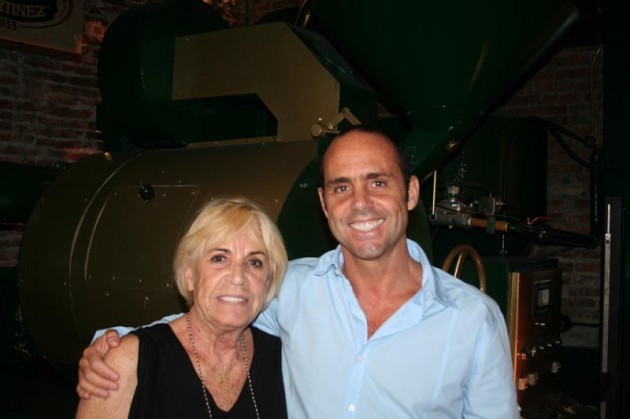 I’m sitting in Buenos Aires now, but last week I was in Puyuehue. Yeah, I had no clue where that was either when I got talked into embarking on a 20-something-hour day of travel to get there. If you look at a map of South America and trace your finger to the very bottom of Chile, that’s roughly where I was.
I’m sitting in Buenos Aires now, but last week I was in Puyuehue. Yeah, I had no clue where that was either when I got talked into embarking on a 20-something-hour day of travel to get there. If you look at a map of South America and trace your finger to the very bottom of Chile, that’s roughly where I was.
I sighed getting on the plane just four days after I got home from India. Having already traveled to Rwanda, Israel, China and India this year in search of the world’s best entrepreneurs, the journey was now quite literally taking me to the end of the earth.
The organization that did the arm-twisting is called Endeavor and thanks to the trip they have the not-too-uncommon distinction of having proved me wrong. For a long time, I didn’t believe any government or non-profit could really help develop clusters of high-impact entrepreneurs. But Endeavor has in very tangible ways, especially here in Latin America and South America.
It started ten years ago to find and help the most promising high-growth companies in emerging markets. It doesn’t actually invest in the 270 or so companies it has selected to be “Endeavor companies,” and a lot of that “help” is hard to quantify—free consulting, coaching and mentoring, and introductions to potential investors.
Indeed, a few entrepreneurs are dubious of how much Endeavor can really do at first blush. But here are a few stats: Endeavor companies have generated some $3.15 billion in revenues, generated nearly 100,000 jobs, and 93% of them are still business. If nothing else, Endeavor has a good eye for talent. (Although you can argue that success rate means they don’t back the riskiest bets that may need them most.)
A more tangible sign Endeavor has made a difference: Nearly 30 of these entrepreneurs have helped develop startup ecosystems by starting venture funds in emerging countries and a whopping 81% of them have donated cash or equity to support Endeavor.
Endeavor pores through hundreds of thousands of entrepreneurs and makes its selections at one of five annual International Selection Panels held in far-flung places around the world. I traveled thousands of miles to this one to see the newest collection of South American candidates and also to see up close how the whole process works. The biggest surprise: It does actually work. Well, that and all the Brazilians were nice to me. (Disclosure: I paid all travel expenses and the regular conference fees.)
The real strength of the Endeavor model is the local teams. They’re staffed by young energetic—and frequently emotional—locals who scour their markets for the best entrepreneurs and nominate them for selection. I’m not quite sure how they find them all.
One of the selected companies was Medix, a medical device company that will generate more than $45 million in revenues this year. 77-year-old Jack Cheja—who never even graduated high school and doesn’t look a day over 60—used to import incubators and when Argentina placed a ban on those imports, well, he just decided to start making his own models. That came in handy a few years later when his daughter gave birth to premature triplets.
Medix now owns 90% of the Argentinean market and is going head to head with giants like General Electric in the rest of the developing world. Cheja is grooming his son, Diego, to take over. The elder Cheja says he didn’t even know he was “an entrepreneur” until the Endeavor crew reached out to him. Indeed, when Endeavor founder Linda Rottenberg started the organization there was no real word for “entrepreneur” in most of these countries. (At least none with a positive connotation.)
Meeting teams like the Chejas I was struck by a deep cultural difference: In America, we can hardly handle Christmas with our families, but most of Endeavor’s teams are like the Chejas—father-son, mother-son, or brother-sister duos. Diego Cheja even joked their succession problems were solved for the next generation too, pointing at his son snoozing away in a stroller.
That DNA-based succession planning can be a good thing and a bad thing. Many candidates are struggling with the transition from family-owned businesses to high-growth startups. For instance, the Argentinean Martinez family has roasted and sold coffee for generations. While most people consider the smell of coffee vaguely comforting, for Marcelo Salas Martinez and his brother Mauro coffee smells like his parents, his grandparents and home. But that warm and fuzzy feeling is also knotted up with a lot of ambition.
The brothers are expanding the business by building a chain of cafes in Argentina, and  potentially other areas of South America. But the path is unclear: Building their own stores is expensive, but franchises haven’t always worked out either. That’s one reason they welcomed Endeavor’s advice. “Sometimes in a family business, you need fresh air,” Marcelo said. (Pictured right, with his mother in his grandparents’ original roasting plant.)
potentially other areas of South America. But the path is unclear: Building their own stores is expensive, but franchises haven’t always worked out either. That’s one reason they welcomed Endeavor’s advice. “Sometimes in a family business, you need fresh air,” Marcelo said. (Pictured right, with his mother in his grandparents’ original roasting plant.)
Here’s how Endeavor’s selection process works: A panel of experts—investors, former Endeavor entrepreneurs, executives at high growth companies— pair off and grill the entrepreneurs for a day. Then the next day in sometimes-contentious sessions, they vote on who should be selected. There’s no quota—they can select all or none of the companies. But the vote has to be unanimous.
This is where the emotion comes in. Many of these entrepreneurs have no access to mentors, capital or basic how-to’s of building a high-growth venture, so becoming an Endeavor company means a lot to them. But put the entrepreneurs themselves aside for a moment—the local Endeavor teams have investing months researching and coaching these entrepreneurs by this point, and no one wants any of their entrepreneurs turned down. They sit in the corner struggling to be quiet like nervous stage mothers.
That pent-up emotion can give way to relentless lobbying if an expert is planning on voting against a company. I’d argue this is actually a negative in the process, as some panelists said they felt bullied to change their votes. But I have to admit, I even started getting upset watching the deliberations.
Delightfully, Endeavor cuts this tension with a 24-hour open bar, evening karaoke parties and 1 a.m. pool parties. The night after their pitches, the Martinez brothers lead the room in a rousing, boozy, Spanish rendition of “I Only Want to Be with You.” Just like at a winning soccer game, one of the brothers half-ripped his shirt off at the end.
It may sounds like a junket; actually it was anything but. These were intense sessions of tough-love advice, and I was impressed at how many entrepreneurs took it in the right spirit, dutifully jotted down notes and asking follow up questions, even seeking the experts out for follow-up conversations if they weren’t selected. There was none of the defensiveness that you frequently see during pitches at US conferences.
In a future post I’ll write more about my favorite company I saw in Puyuehue, but now, I’ve got to catch a flight home.